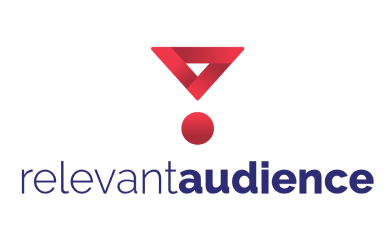A look at today’s challenges and how to succeed
Privacy has become a hot topic in recent years. For example, Google announced that it would phase out third-party cookies to be replaced with new tracking technology, and similar changes were implemented with Apple’s iOS 14.5 release.
Nonetheless, the elimination of third-party cookies is impacting all advertisers. This presents a real challenge for B2B marketers, who operate in an area of marketing where it is often difficult to reach a relevant audience, regardless of third-party cookie issues.
A look at recent history and where we are today
In the early days of the internet, privacy was not a concern.
The internet empowered people to easily find and buy any product or service they could imagine.
Marketers soon learned that they could dig into this user to uncover valuable insights into buyer behavior.
During this process, retargeting was born.
Privacy was not part of the equation. The new technology to advertise to a highly relevant audience based on user behavior was an excellent opportunity for marketers.
Today, retargeting is used by many businesses around the world. Moreover, people have wised up and know when they are being retargeted. Unfortunately, advertisers often get retargeting wrong, which frustrates users and does not lead to the results that the marketer is looking for; everyone is a loser.
This misuse of technology is part of the reason why privacy changes have been pushed through. Understandably, people are tired of being followed relentlessly by poorly executed marketing campaigns.
What will be impacted by the privacy changes?
B2B marketing is a challenge, partly because B2B searches are not differentiated from consumer searches.
In search marketing, many keywords could relate to a consumer or B2B search, even though they are looking for two different things.
Terms like “accountant”, “insurance”, and “designer” could relate to a business or consumer search.
Third-party cookies had helped with this situation when Google announced audience targeting options such as affinity and in-market audiences. This meant that marketers could use these audience signals as they were based on search and browsing behavior.
Even though the data and categories are far from perfect, they were all marketers had. However, the targeting options available in affinity and in-market audiences are made using third-party cookies, which means that they will be deprecated.
Broadly, advertising and attribution services that use data collected by third parties from multiple websites will see the most negative impact. For example, including:
Third-party collection of digital identity – It has been valuable to understand who engages with your ads and who to target. The data is not collected directly by your brand and is potentially available to your competitors, so it may not be as valuable as first-party data collection.
Ad targeting across multiple platforms – This relates to the function of accurately targeting users based on behavior across multiple online platforms. If the targeting relies on 3rd party data such as retargeting, socio-demographic, affinity, interest, and intent/in-marketing targeting, it is negatively impacted.
Attribution and reporting – This relates to the tracking and crediting of outcomes based on digital marketing (paid or organic). Such as assisted and view-through conversions and parts of email reporting.
These options have not been impacted
All is not lost as there are various ways to continue to connect and engage potential B2B clients that do not conflict with privacy changes, such as:
Your brand’s first-party data – This is yours; you own it and are responsible for it. Therefore, this data will continue to be your business’s most valuable marketing data. Examples here include website users, email lists, webinar registrations, and other database contacts. As long as users in the list opt into your email list to give your business permission to market to them, these datasets will be valuable to your brand, and growing these first-party data audiences should become a core tactic to focus on.
First-party cookies – If you collect cookies on your domain by enabling your website to track and remember users, this is still allowed, as long as you abide by local privacy laws such as the PDPA or GDPR. First-party cookies can serve as effective tools for website personalization and marketing automation.
First-party data options – If you have another source of first-party data through online platforms (such as social platforms, search engines, network websites/newsletters, podcasts, or influencers) your brand will be able to continue running ads and targeting users through these platforms.
Retargeting using first-party tools – Social networks such as Facebook and Linkedin provide first-party retargeting options using their pixel. Once you have their pixels installed on your website, your brand can continue running ads on these advertising networks to users who have visited your website.
Retargeting by engagement – It is still possible to retarget users who have interacted with your ads on social networks such as Facebook or LinkedIn (such as engaged with one of your posts, viewed a video, or clicked a link in one of your posts)
Connecting first-party data with other first-party data is still allowed, so you can continue uploading first-party data email lists to networks such as Linkedin, Google, and Facebook to build audiences and target your users on their platforms.
Targeting through IP – IP Targeting enables advertisers to target users at a physical location (business or home) based on their IP address location. One case in point is if you have the user’s physical address, you can continue to serve display ads to people when they are connected to the internet.
Contextual targeting – Contextual targeting is still allowed; this allows advertisers to serve ads based on the information on the page being viewed by the users.
Conclusion
Advertising and marketing have been through many changes and have come out the other side successfully. Cookie changes may take some navigating, but there are options for marketers to take advantage of and continue capturing your target audiences’ attention and growing market share.
If you have any questions about privacy changes or B2B marketing, please feel free to contact our expert team at info@relevantaudience.com for more information.













